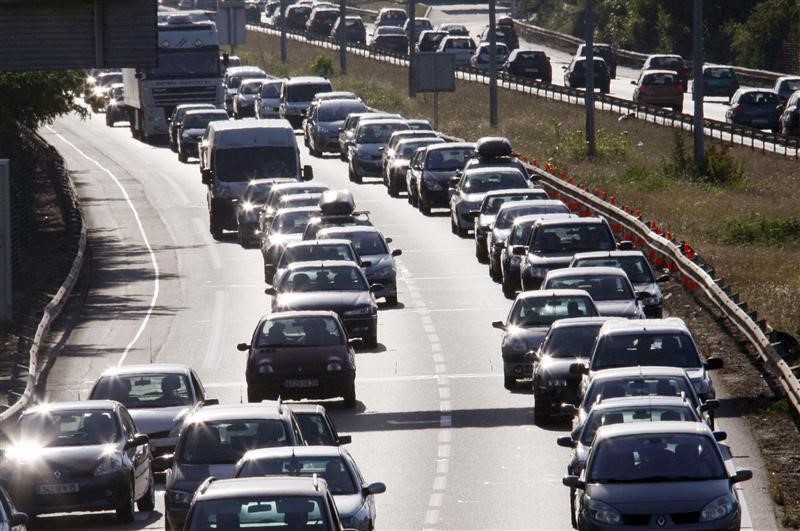By Serajul Quadir
DHAKA, Dec 15 (Reuters) - Bureaucracy is a major obstacle to
economic growth in Bangladesh, burdening businesses with extra
costs and leaving them less competitive than companies
elsewhere, the chief economist of the World Bank said on
Tuesday.
"Bureaucracy hinders the process of business in Bangladesh
while neighbouring countries like Singapore and South Korea are
faster and more efficient," said Kaushik Basu, who is also a
senior vice president of the bank, as he concluded a four-day
visit to Bangladesh.
A business leader told Reuters separately that he had
calculated Bangladesh's bureaucracy cost business $1 billion a
year.
An intricate legal infrastructure means opening a business
can involve at least a dozen government departments, said Ershad
Ahmed, a former president of American Chamber of Commerce in
Bangladesh - the "central bank, national board of revenue, port
authority, ministry of labour, telephone department, energy and
power company, related regulating bodies and so on."
And the World Bank admitted its own bureaucracy could cause
problems, particularly in sanctioning loans, said Basu and
Martin Rama, the acting country director of the World Bank in
Bangladesh.
"We have been trying hard to narrow it down as soon and as
much as possible," Rama told reporters.
Basu also said Bangladesh needed to increase investment in
infrastructure sector. Rama said in the same press briefing that
out of total assistance it provided so far, 40 percent was
allotted to infrastructure, especially for energy and power.
Basu called on Bangladesh to increase taxation, which is
lower relative to the size of the economy than in other Asian
countries, even Nepal. At present, Bangladesh's tax-GDP ratio is
9.6 percent, compared with Nepal's 12 percent. In Bulgaria, the
poorest member of the European Union, it's about 28 percent.
Basu praised several Bangladesh achievements, among them its
foreign exchange reserves, growth of exports, economic growth,
flow of remittance, ready-made garment sector, growth of
investment and estimation of poverty.
Foreign exchange reserves are now $27 billion, equivalent to
seven months of imports, according to Atiur Rahman, the governor
of the Bangladesh central bank.
"This comfortable reserve has strengthened the confidence of
investors and lenders, particularly abroad," Rahman said.
The reserves have helped to keep the exchange rate stable
for several years, Basu said.
- English (USA)
- English (UK)
- English (India)
- English (Australia)
- English (South Africa)
- English (Philippines)
- English (Nigeria)
- Deutsch
- Español (España)
- Español (México)
- Français
- Italiano
- Nederlands
- Português (Portugal)
- Polski
- Português (Brasil)
- Русский
- Türkçe
- العربية
- Ελληνικά
- Svenska
- Suomi
- עברית
- 日本語
- 한국어
- 简体中文
- 繁體中文
- Bahasa Indonesia
- Bahasa Melayu
- ไทย
- Tiếng Việt
- हिंदी
World Bank says bureaucracy a major weakness of Bangladesh economy
Published 2015-12-15, 11:28 a/m
World Bank says bureaucracy a major weakness of Bangladesh economy

Latest comments
Install Our App
Risk Disclosure: Trading in financial instruments and/or cryptocurrencies involves high risks including the risk of losing some, or all, of your investment amount, and may not be suitable for all investors. Prices of cryptocurrencies are extremely volatile and may be affected by external factors such as financial, regulatory or political events. Trading on margin increases the financial risks.
Before deciding to trade in financial instrument or cryptocurrencies you should be fully informed of the risks and costs associated with trading the financial markets, carefully consider your investment objectives, level of experience, and risk appetite, and seek professional advice where needed.
Fusion Media would like to remind you that the data contained in this website is not necessarily real-time nor accurate. The data and prices on the website are not necessarily provided by any market or exchange, but may be provided by market makers, and so prices may not be accurate and may differ from the actual price at any given market, meaning prices are indicative and not appropriate for trading purposes. Fusion Media and any provider of the data contained in this website will not accept liability for any loss or damage as a result of your trading, or your reliance on the information contained within this website.
It is prohibited to use, store, reproduce, display, modify, transmit or distribute the data contained in this website without the explicit prior written permission of Fusion Media and/or the data provider. All intellectual property rights are reserved by the providers and/or the exchange providing the data contained in this website.
Fusion Media may be compensated by the advertisers that appear on the website, based on your interaction with the advertisements or advertisers.
Before deciding to trade in financial instrument or cryptocurrencies you should be fully informed of the risks and costs associated with trading the financial markets, carefully consider your investment objectives, level of experience, and risk appetite, and seek professional advice where needed.
Fusion Media would like to remind you that the data contained in this website is not necessarily real-time nor accurate. The data and prices on the website are not necessarily provided by any market or exchange, but may be provided by market makers, and so prices may not be accurate and may differ from the actual price at any given market, meaning prices are indicative and not appropriate for trading purposes. Fusion Media and any provider of the data contained in this website will not accept liability for any loss or damage as a result of your trading, or your reliance on the information contained within this website.
It is prohibited to use, store, reproduce, display, modify, transmit or distribute the data contained in this website without the explicit prior written permission of Fusion Media and/or the data provider. All intellectual property rights are reserved by the providers and/or the exchange providing the data contained in this website.
Fusion Media may be compensated by the advertisers that appear on the website, based on your interaction with the advertisements or advertisers.
© 2007-2024 - Fusion Media Limited. All Rights Reserved.